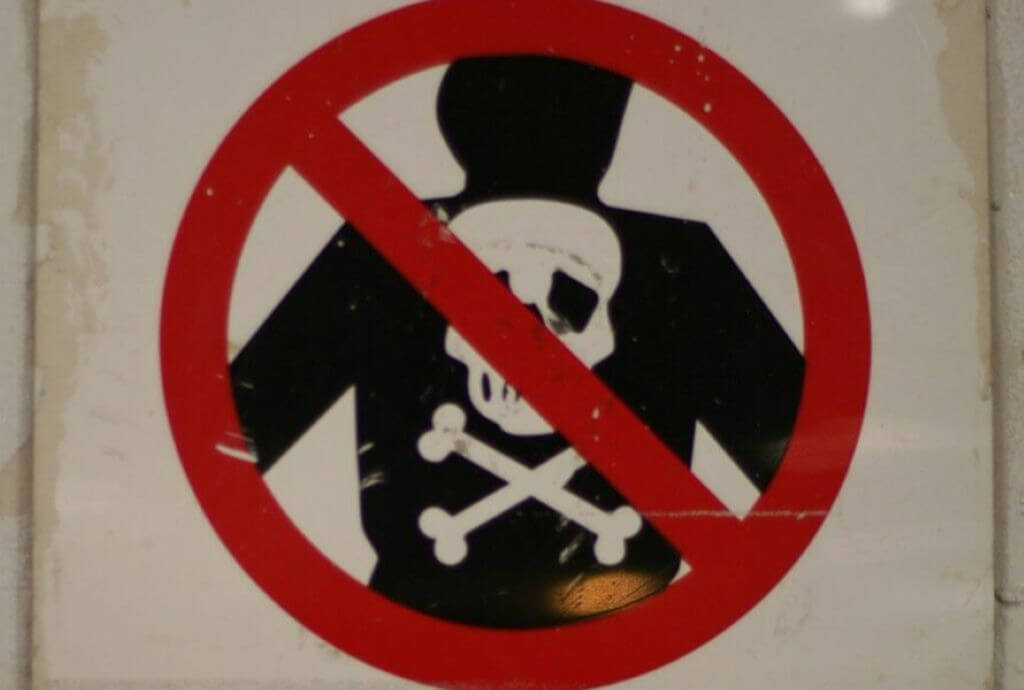In brief:
- The NZ Medical Council, which does not necessarily have any more medical knowledge than the doctors it licences, directed them to promote the government’s COVID response.
- At the same time, the government was running ads implying you would receive unbiased advice from your doctor.
- Doctors who questioned faced harsh sanctions for dissenting even though there were questions about the legal effect of the Council’s edict.
- A former Council member’s court testimony revealed what he perceived to be a punitive and closed minded culture.
- Stifling the doctors made it difficult for the public to inform themselves.
Medical Council’s “guidance” during the pandemic
The New Zealand Medical Council issued a “Guidance Statement” (see below) to doctors, in April 2021, stating “there is no place for anti-vaccination messages in professional health practice”, then enforced it vigorously, at a time when the Government was urging people to get unbiased advice from their doctors. For instance here is an excerpt from one of those ads: “In Aotearoa the below sources provide accurate and reliable information: Your GP, pharmacist, iwi health provider or other health professional.”
This guidance was interpreted to cover many suggestions of alternative or even complimentary action, creating a pall of censorship.
The Medical Council’s purpose is to ensure the doctors maintain standards, but the doctors determine the treatment for their patients.
It is important to emphasise this article is not about the efficacy of the COVID response or vaccine. It is about the public’s right to inform themselves and make their own choices about their health. Many are willing to follow the government’s instructions, but others like to consider the alternatives.
There is no evidence the Medical Council had or has any special insight into COVID but it nonetheless took the position it knew best and it wanted the conversation to be very narrow.
Note many would argue the COVID vaccine was not like a traditional vaccine for many reasons. Among other things, it was the first of its kind and there was very little time for development or testing.
Council Member testifies to internal discord
“In September 2021,” Richard Aston testified, “the first wave of complaints about doctors, COVID, vaccines, and the prescribing of Ivermectin came to MCNZ. I was shocked at the different approach Council members had toward these complaints, compared with their normal thorough and fair approach.”
The explosive evidence, which goes to the heart of public faith in the medical profession and government, comes from a former member of the Medical Council in a High Court judicial review case recently.
The Medical Council does not want this affidavit to be available to the public and, indeed, most of it is not at this time. This section is, however, as it has been read out in open court.
Aston, who served a five year stint as Chairman of the Board of Consumer NZ up until 2019, was then appointed to the Medical Council of New Zealand in October that year and remained a member until June 2022. His LinkedIn profile states he remains a lay member on Healthcare Professional Conduct Tribunals.
Handling of complaints against doctors was extreme
“The complaints,” Aston testified, “ranged from a doctor emailing a colleague with doubts about the vaccine, through to doctors advising some patients (e.g. pregnant women and children) not to take the vaccine, to doctors speaking at public meetings against wholesale vaccination of everyone. Aston testified that there was general agreement among most MCNZ members that the COVID vaccine was a zero risk medication, and that doctors who thought the side effect risks were significant were woefully misinformed.
“The approach from MCNZ staff and most MCNZ members was to rely on the guidance statement, which indicated doctors should promote vaccine benefits not highlight risks. That meant that a doctor talking about the risks associated with vaccination was a reason to take disciplinary action.
The culture change was unreal and disturbing.
– Former MCNZ Member Richard Aston
“With the exception of my contributions (with occasional support from one or two others), there was no engagement by the other members of MCNZ with the nature of informed consent, the doctors’ Code of Ethics, or Human Rights more generally. When I asked one other member what they thought about submissions from one doctor’s lawyer, which focused heavily on the Human Rights aspects, they said they hadn’t bothered to read them. I tried to get engagement with these issues during our Council meetings but it was my impression most members’ minds were closed.
“The culture change was unreal and disturbing. The chair would introduce these COVID items with ‘Here we go – it’s flat earth time, get your tin foil hats on – we’ve got another anti-vaxxer in front of us’. Or ‘The Vitamin C brigade has arrived’. The majority of the council went along with this dismissive, ridiculing approach, with maybe three people, including myself, not joining in this prejudgment game.
“I was on the MCNZ for ‘COVID cases’ that came through from approximately October 2021 through to January 2022. The complaints came from the general public and the medical profession. In general, the doctors complained about had serious questions about the COVID vaccine from an informed consent angle.
“Some had questions about the nature of the actual COVID risk to health and some were looking for alternative treatment options that had been banned (e.g. Ivermectin, Vit D, zinc etc). Some complaints were trivial, e.g. a GP simply emailing a practice colleague with doubts about the vaccine. Others were doctors speaking out in public questioning the pandemic policies. Some doctors were openly cautioning their patients to think carefully before agreeing to a COVID vaccination.
“What alarmed me at the time was the majority of MCNZ members were aggressive in their response to all these ‘anti-vax’ doctors, calling for harsh, vindictive even, sanctions for even the most minor of cases. The usual detailed discussion of evidence and high-level legal arguments was abandoned. It was clear that most other members of MCNZ’s council considered that any doctor who so much as doubted any of the COVID pandemic directives should be heavily sanctioned and preferably suspended. Most of our meetings were by now conducted on Zoom due to lockdowns.”
Legal case
The judge has reserved their decision on a judicial review application by a group called NZDSOS (NZ Doctors Speaking out on Science) on whether the Medical Council breached its powers by trying to use their position to control the doctors’ inherent discretion to decide each situation on the individual circumstances. Also, their edict had the effect of stripping the doctors of their own rights, to freedom of speech, for instance.
At the core is a “Guidance Statement” (see below) issued by MCNZ in April 2021. The evidence shows it has been used in disciplinary hearings but MCNZ now argues it was never a compulsory standard. Compulsory standards have to follow a process, including consultation, which was not done here. The legal argument is fairly technical, with lawyers for NZDSOS essentially asking the High Court to apply the ‘Duck Test’ (if it waddles and quacks it probably is…) given MCNZ’s use of it.
There is ample evidence in a separate case that the Health and Disability Commissioner found doctors guilty of failing to “comply”:
“Ultimately, I consider that Dr B irresponsibly shared anti-vaccination misinformation when she sent Ms A the COVID-19 document. In my view, this amounts to a failure to comply with the MCNZ guidance statement.”
The HDC Commissioner then concludes:
“In my view, these issues represent failures to comply with MCNZ standards.[14]”
Footnote 14 confirms that the supposedly not legally binding “Guidance Statement” was regarded as law.
Just as an aside, but worth mentioning in the context of the medical authorities helping to control the narrative, the HDC Commissioner’s case against Dr B was that she had sent information on alternative treatments to a woman in MIQ who had just tested positive for COVID and was asking about treatment options.
That “alternative” treatment included advice on vitamins C and D, contained on page 15 of an American document Dr B forwarded to the MIQ patient.
The HDC report notes:
“Dr B said that at the time, the regional [Health] guidelines stated, ‘[N]o specific treatments are currently recommended in primary care,’ and that as a medical doctor she found that to be unethical. Dr B stated:
“ ‘It is unethical that there were no options other than monitoring for symptoms until it was severe enough to go to the hospital. It is unethical to overlook the treatment options that were successfully used overseas who at the time had a significantly higher number of people positive with COVID-19. I had only shared this document once, and it was to [Ms A] with the intention that she share it with her family doctor to see if it was appropriate for her. New Zealand was behind the rest of the world in terms of the number of COVID-19 positive cases and treatment options were based upon international data. Similar to the Pfizer vaccine being recommended here in New Zealand based upon the millions that had received it in the United States of America and Israel prior to the vaccine rollout.’
What alarmed me at the time was the majority of MCNZ members were aggressive in their response to all these ‘anti-vax’ doctors, calling for harsh, vindictive even, sanctions for even the most minor of cases.
– Former MCNZ Member Richard Aston
“Dr B felt that the Ministry of Health could have done better to provide early treatment to patients with COVID-19 to prevent deterioration of their health, hospitalisation, and death. She stated: ‘Upon reflection, all our hope was put into a single Pfizer vaccine that has now been proven to have not stopped transmission’.”
Quite.
The Guidance Statement was revoked in September 2023, shortly after the NZDSOS lawsuit was launched. It does not seem to have been amended between when it was issued in April 2021 and when it was revoked, despite there being all kinds of changes and new information on the COVID front.
The Guidance Statement said that doctors should use the Ministry of Health website as their “sole” source of vaccine information. It then added:
“As a health practitioner, you have a role in providing evidence based advice and information about the COVID-19 vaccination to others. You should be prepared to discuss evidence based information about vaccination and its benefits to assist informed decision making. There is information on the Ministry of Health website to support engagement with staff or colleagues and the public who may be hesitant about getting a vaccine.
“As regulators, we respect an individual’s right to have their own opinions, but it is our view that there is no place for anti vaccination messages in professional health practice, nor any promotion of anti vaccination claims, including on social media and advertising by health practitioners.”
Public trust in medical advice questioned
As a member of the Medical Council at the time, whistleblower Richard Aston’s evidence paints a grim picture of medical regulators working in lockstep with the government to impose a medical intervention on the entire population, and effectively a false assurance that people could trust their doctors to give them unbiased advice. What is not known is whether this was by design or happenstance. Hopefully the COVID Inquiry will get to the truth of the matter. This is not only about the vaccine, but all other actions any zealot might want to complain about.
Meanwhile, much changed, and quickly, on the COVID front in the more than two year period the Guidance Statement was live (and unchanging). So was a doctor supposed to just constantly follow the advice on the Ministry of Health website during this period, regardless of how up to date, or lacking nuance, it was?
Some disciplinary hearings against doctors, initiated up until the time the policy was revoked a year ago, remain live. In the view of many doctors, this suppression has created a culture where doctors are fearful of speaking out on anything contentious, and that has ongoing implications for patient informed consent. It also raises significant questions about the balance between public health policy and individual rights.
Disclosure: Centrist.co.nz provided support to the legal action discussed in this article.



















